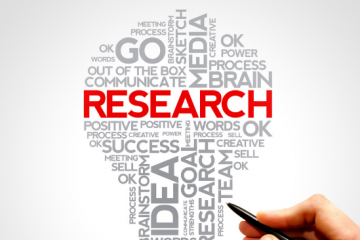Like all researchers, some questions or relationships greatly pique my curiosity and compel me to investigate. I am deeply interested in what makes people engage in environmental or civic actions. This interest in how people get involved has driven me to collect my own data on how emotions affect environmental engagement for a senior thesis project. But the Equity in America project has allowed me to build off this research and provided a venue for me to continue investigating my curiosity. The project features an interdisciplinary group of investigators with the common mission of researching equity in health, wealth, and civic engagement in the United States. The first iteration of the Equity survey was fielded by Tisch College in April and May of 2020. This survey sampled a representative population of Americans while asking timely questions about COVID-19, civic engagement, health, and wealth. The second round of data was collected this spring with updated COVID-19 questions and refined measures of health and engagement.
Using the data collected from the first and second round of the survey, we were able to investigate the relationship between environmental exposures (air pollutions, proximity to pollution, heatwave days, and greenspace) and civic engagement (canvassing, willingness to vote, collective efficacy, civic interest, and group problem solving) and whether this relationship is mediated by individual experience of climate stress. Climate stress is an emerging concept in the relevant literature, but whether labeled climate stress or climate anxiety, these terms describe the stress and anxiety individuals feel about the looming and present threat of climate change. Our guiding hypothesis in this research was that individuals who experienced worse environmental exposures would be more likely to experience climate stress and, therefore, be more likely to engage civically. This hypothesis is grounded in research and literature in the associated fields. A study of this type wouldn’t be possible without the Equity research project; it is only through a unique collaboration of researchers across disciplines that the richness of the Equity project is possible. It is rare that a nationally representative study collects information on health, engagement, sociodemographic factors, and environmental variables. Given the breadth of the survey, many innovative research projects are possible.
In addition to my curiosity about civic action, I became interested in researching COVID-19 like many other researchers this year. Similar to the uniqueness of the civic engagement study outlined above, the Equity study provides the opportunity to provide insight into the COVID-19 pandemic that prior studies have not. The study investigates the relationship between environmental context (a construct of air pollutions, proximity to pollution, heatwave days, climate stress, and greenspace) and COVID-19 outcomes (health, economic, and social). This study is unique in evaluating COVID-19 outcomes beyond morbidity and mortality, allowing for a complete impact of the pandemic to be seen through the data.

Conceptual model of the relationships between environment, climate stress, and civic engagement that were investigated in this study.
The Equity Project has allowed me to further research a question that I am passionate about on how people become engaged while also allowing me to assist in timely research on COVID-19 that provided more complete impacts of the pandemic on participants. The Equity Project is exemplary interdisciplinary research and will be a model that I strive to replicate as I pursue a career in research.




0 Comments